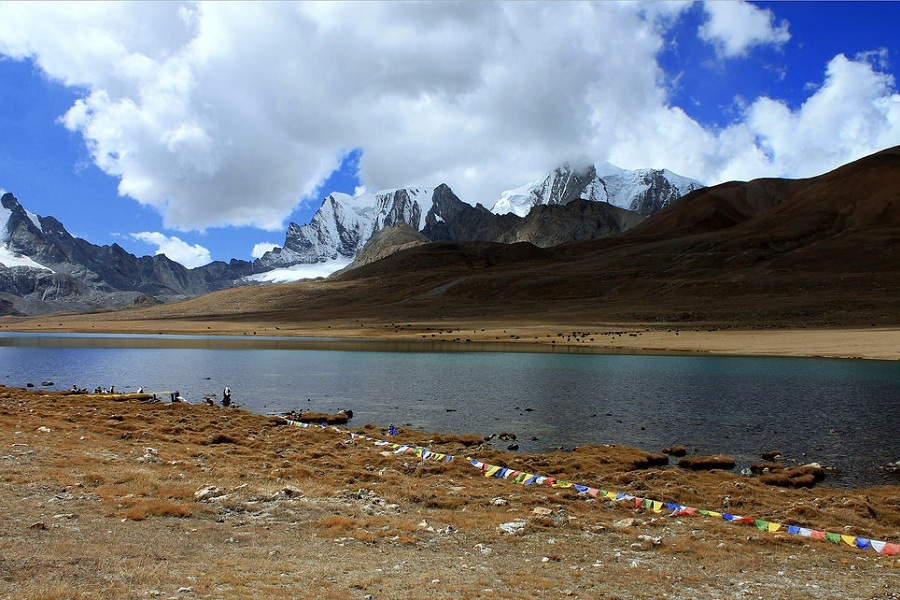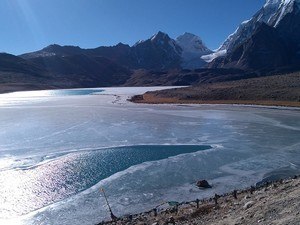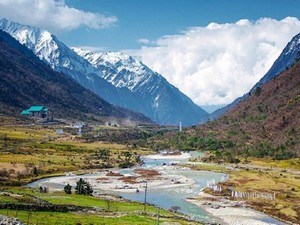Tso Lhamo / Cho Lhamo Lake, Lachen - Timings, Entry Fee, Boating, Best Time to Visit
 #3 of 8 Places to Visit in Lachen
#3 of 8 Places to Visit in Lachen
 Distance (From Lachen): 74 Kms
Distance (From Lachen): 74 Kms
 Trip Duration (Including Travel): 2 Hours
Trip Duration (Including Travel): 2 Hours
 Place Location: Beyond Guru Dongmar Lake
Place Location: Beyond Guru Dongmar Lake
 Transportation Options: Cab
Transportation Options: Cab
 Travel Tips: Visitors need special permission from the Indian army and Sikkim Police/ Administration to visit this lake since it is near to the Indo-China border. Foreigners are not allowed to visit this lake.
Travel Tips: Visitors need special permission from the Indian army and Sikkim Police/ Administration to visit this lake since it is near to the Indo-China border. Foreigners are not allowed to visit this lake.
At a distance of 10 km from Gurudongmar Lake, 40 km from Thangu and 74 km from Lachen, Tso Lhamo Lake is a glacial lake situated beyond Gurudongmar Lake in North Sikkim. Located at an altitude of 17,490 feet, the Tso Lhamo is the highest lake in India and 14th high altitude lake in the world.
The lake is known by several names such as Cho Lhamo, Cholamu Lake or Cholamoo Lake. It is situated 4 km southwest of the international border with China. Fed by the surrounding snowcapped glaciers, the lake is one of the sources of the Teesta River. The landscape of Cholamu Lake is simply breathtaking and is an ideal place for nature lovers. It is one of most astoundingly beautiful lake that tops the list of Sikkim's must visited lakes. The landscape of Cholamu Lake is simple in its elements, stern and solemn.
Surrounded by snow-clad mountains, the crystal blue waters of the lake provide an enchanting view. As it is situated a few km away from the Tibet border visitors need an Army permit before taking the normal tourist permit. It is difficult to get permission to visit this lake and it is advisable not to visit this place in monsoons or winters. However, if weather permits visitors can get permits easily. Mostly no travel agencies risk their vehicles and driver in this risky terrain, so one can trek up to the Cholamu Lake from Lachen or can opt to rent a private taxi till Chopta valley from where the trekking is not that long.
The ideal time to visit Cholamu Lake is from October - November as one can witness a clear sky during this time of the year. Taking a trip to Cholamu Lake right after the monsoons is not a good idea as by that time most of the roads would be washed away with rains, and Border road organization (BRO) will be busy patching up the roads.














